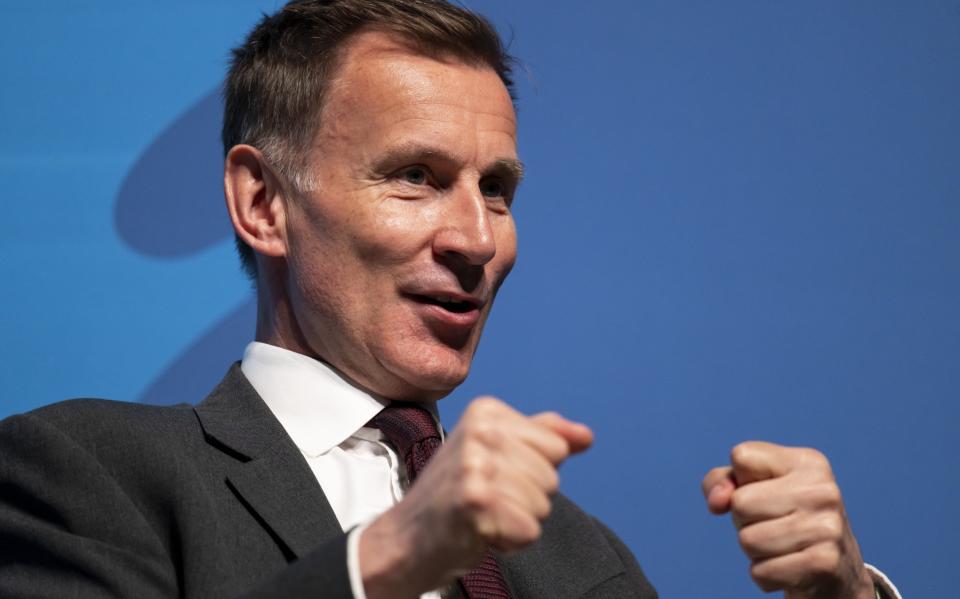Thousands of middle earners face 100pc-plus tax after Hunt’s stealth raid

Jeremy Hunt’s tax raid will punish tens of thousands more middle class families with tax rates of more than 100pc by the next election, a think tank has warned.
Policy in Practice said the "absurd" way welfare payments – including child benefit – are withdrawn for higher earners means around 120,000 households are already paying more back to the state in tax and the clawback of benefits for every extra pound they earn above £50,270.
It said the Chancellor's decision to freeze the level at which workers start paying 40pc income tax at this level until 2028, as well as the thresholds at which child benefit starts and finishes being tapered away, means 180,000 families who also qualify for universal credit face effective marginal tax rates of 103pc within five years.
Mr Hunt's decision to uprate a range of welfare payments in line with the cost of living while freezing income tax thresholds means in cash terms more benefits are withdrawn for every pound earned.
This means someone earning between £50,270 and £60,000 with three children who also qualifies for universal credit to help with housing or childcare costs faces paying more back to the Exchequer in taxes and benefits back as their earnings rise.
High inflation is expected to drag tens of thousands more families into this situation before the next election.
Deven Ghelani, director of Policy in Practice said the policy was sending a message that "work doesn't pay", adding: "This policy means every family with children on £45,000 is having to think harder about whether or not they want to work more."
He said the frozen tax thresholds were creating massive disincentives to work for some higher earners. "It's a real problem," he added. "Accountants [tell us] they have people coming to them who are saying: how do I not earn more? This is going to be a problem for me."
Helen Miller, deputy director of the Institute for Fiscal Studies (IFS) also described the situation as "silly", adding that the penalty would make people think twice about working more. "I expect that higher rates will disincentivise work for some," she said.
IFS calculations show some parents earning between £50,000 and £60,000 already face marginal tax rates of above 50pc, rising to 70pc for someone with three children not on universal credit.
She said marginal tax rates would only keep increasing unless the Government took action.
"Child benefit is going up in nominal terms, which means that in order to reduce the child benefit across that range, you have to have higher and higher marginal rates. So – we were not there yet [with people not on universal credit] – but if you continue in that system, you could easily get to marginal rates above 100pc."

 Yahoo Finance
Yahoo Finance 